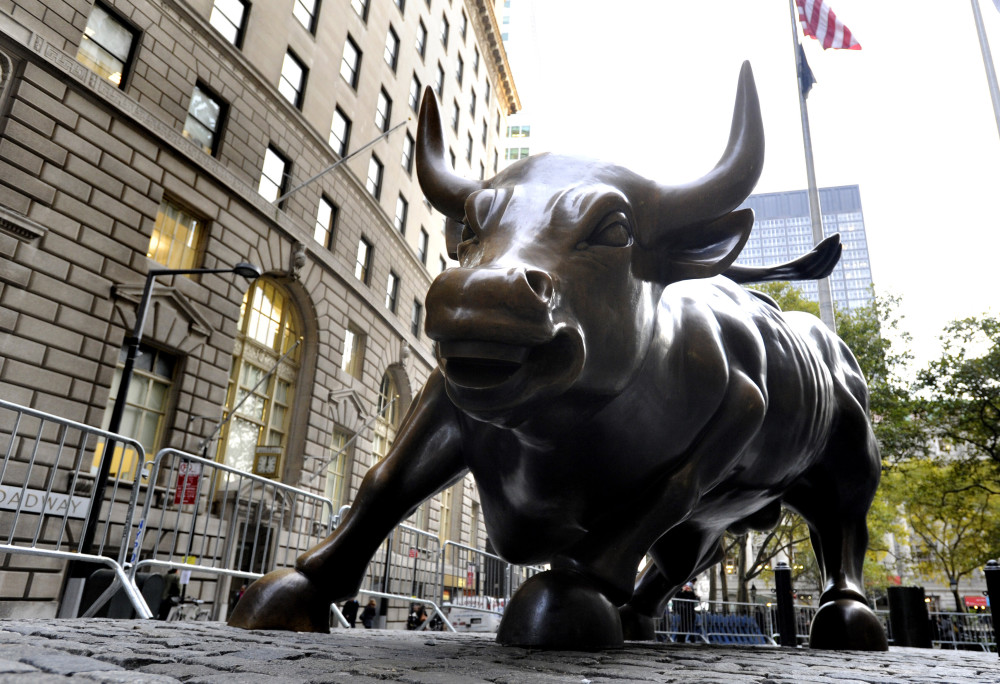By Gail MarksJarvis
Chicago Tribune.
Americans are in no mood to accept happy talk.
Most of them have become deeply distrustful, distrustful of government, distrustful of financial companies, distrustful of employers and distrustful of most authority that has derived power in the past by virtue of being big or having elite positions.
“If you want an explanation for Donald Trump, this is it,” said Richard Edelman, president of the Edelman public relations firm that has been surveying trust levels for about two decades.
Edelman is alarmed by the recent erosion of trust he uncovered in the U.S. and around the world.
“This is huge,” with implications far beyond politics, he told hundreds of business executives at Chicago’s Executive Club recently. “You might have little authority; you’ve lost your influence.”
Distrust is profound, infecting the entire globe.
Edelman’s findings are not surprising. After all, people discovered in the financial crisis that every major institution failed them and put the world in danger of a global depression. Congress, President George W. Bush’s administration, and the Federal Reserve failed to police financial institutions despite loads of warnings from consumer groups. Wall Street went wild turning mortgages, and even imaginary pieces of mortgages, into securities and made a fortune selling them around the world to large institutions that should have been doing their homework. As the poison infected the world’s financial system, Federal Reserve Chairman Ben Bernanke assured Americans that the problem was contained and soon afterward begged for an emergency $700 billion bank bailout.
Now most people are skeptical that they will ever share in the wealth held by what Edelman calls “the elite.” Among 85 percent of the population, “trust levels have not budged since the Great Recession,” and there is now a great divide in the perceptions of the masses and the people with the highest 25 percent of incomes.
In the past, Edelman found that people did not resent the wealthy and powerful because they assumed that if they worked hard, they would ultimately share in the wealth in the future. Now that belief has melted away. Besides income inequality, Edelman has found “inequality of trust.” Yet, he warns, elites are still convinced the masses will partake in their success and follow their lead, while the masses no longer believe in traditional authority.
“There is a grand illusion at play,” said Edelman. “There’s a lingering notion that elites continue to lead and the masses will follow. This historic model of influence was predicated on the belief that elites have access to superior information and their interests are interconnected with those of the broader public.”
He’s warning business and government leaders that “the trust of the mass population can no longer be taken for granted.” After the revelations of “greed and misbehavior” people have seen the last few years, “any continuation of the grand illusion is dangerous.”
“Why should you care?” he asked business leaders. “Because if you aren’t trusted, you can’t sell products, hire people or attract or keep investors.”
Economists have been troubled throughout the recovery that even though incomes were slowly rising and households should have more pocket money now that gas prices are low, spending hasn’t followed the expected trend. Consumers are increasing their saving and being careful about spending, perhaps the behavior of people who feel like they can’t trust their jobs, government or business the way they once did.
Edelman told business leaders they’ve been hiding the last few years, as they have hacked away jobs. Now, “you have to lead” and “talk with employees.”
“There is a fear of innovation because people are afraid of job loss,” he said. So employees “will fight” innovation and “put up roadblocks. You have to reassure them and then you can sell products.”
“Have very frequent talks with employees because they are your best allies,” he said, drawing a comparison to families: “When you don’t talk to your kids, you have a breakdown in the family.”
He warned CEOs that philanthropy alone is inadequate in these times for building goodwill.
He lauded Starbucks’ Howard Schultz as an example of the new leadership, a person who led a teen employment effort. “It was an extension of values. People want CEOs to be trustworthy, competent, ethical and transparent.” He praised Allstate’s Tom Wilson, for efforts to fight violence, and Citadel’s Ken Griffin, for early childhood development.
In its global survey on trust, Edelman conducted 20-minute online interviews with 33,000 people.
___
ABOUT THE WRITER
Gail MarksJarvis is a personal finance columnist for the Chicago Tribune and author of “Saving for Retirement Without Living Like a Pauper or Winning the Lottery.”














































































































































































































































































































































































